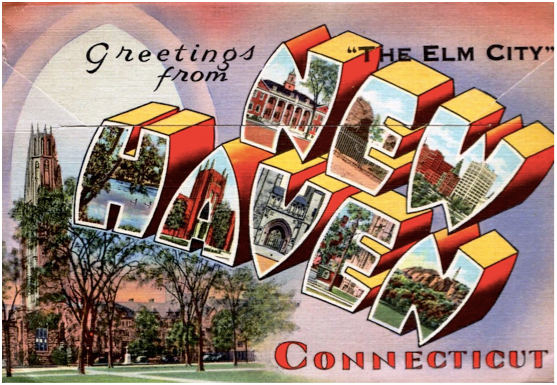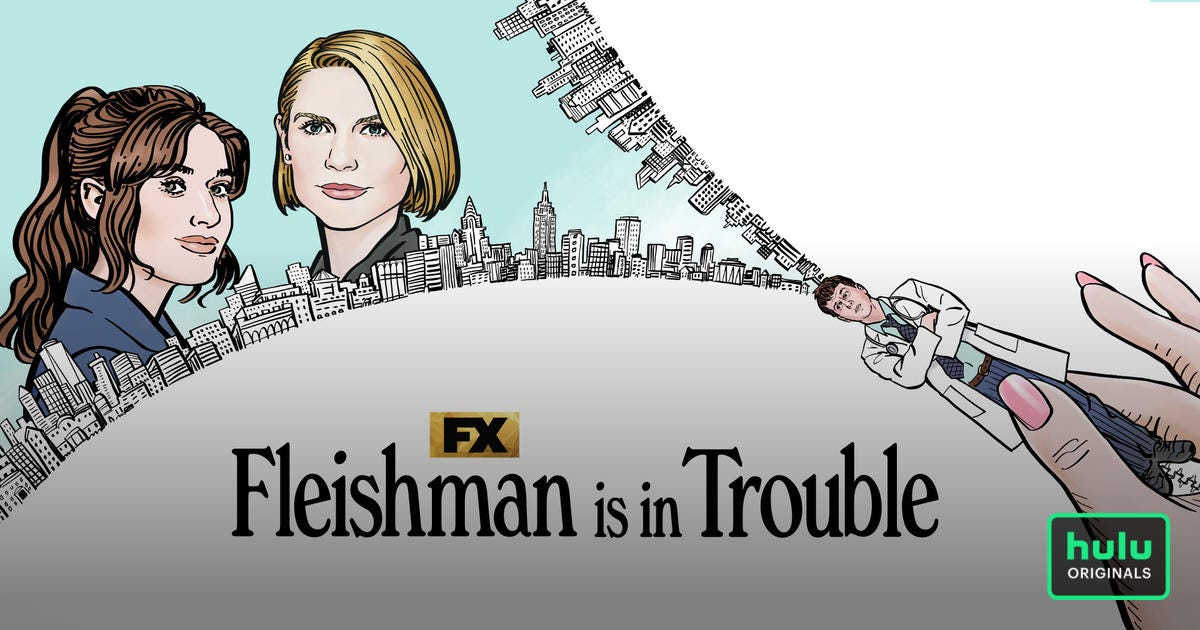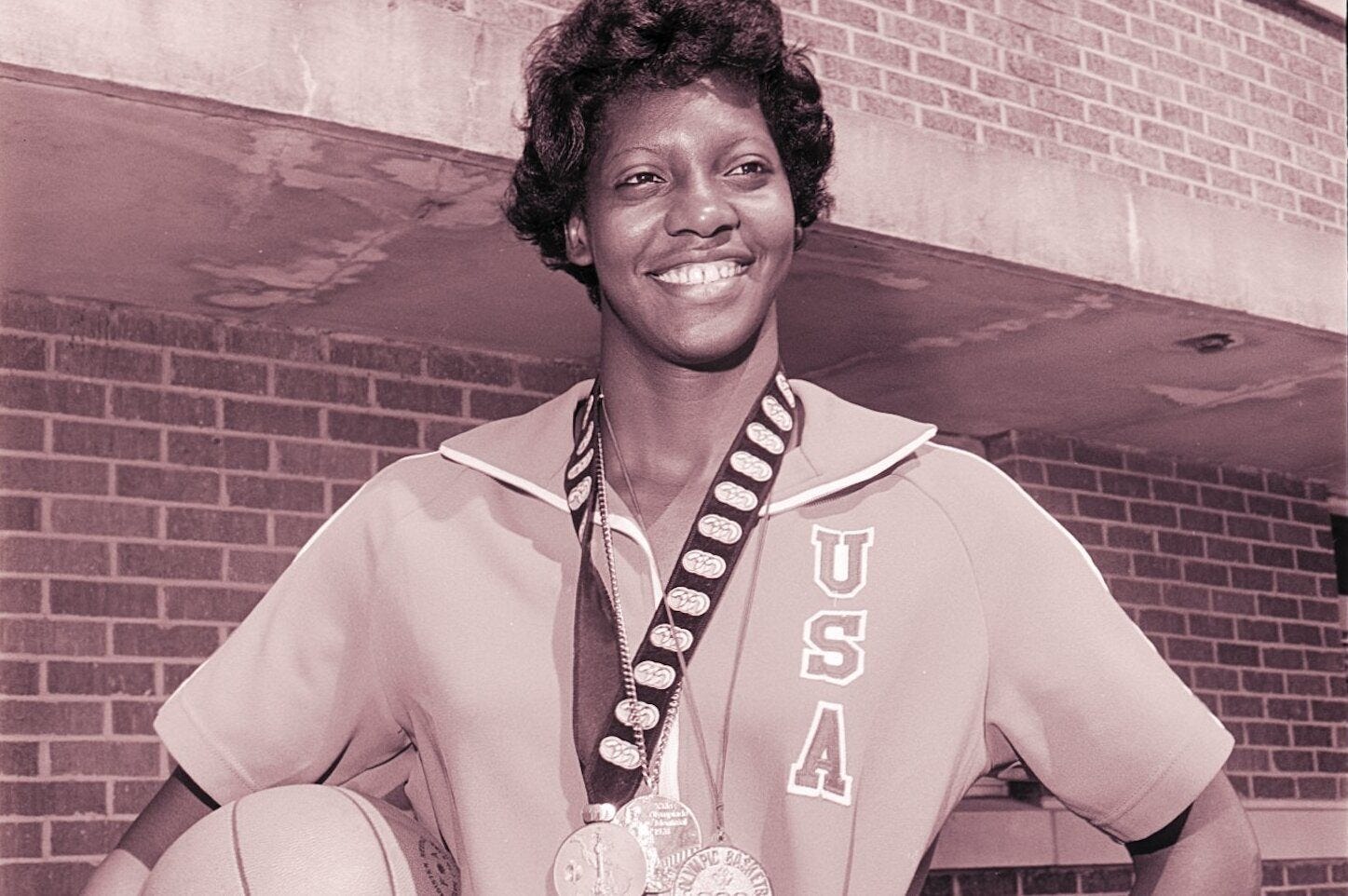Greetings from "The Elm City"
Dr. Fleishman, the "Queen of Basketball," and Richie Cunningham walk into a bar...
Thanks to everyone for reading last week’s inaugural newsletter. Based on the feedback I received from many of you, Slow Horses was the top recommendation of the week, both for those who were new to the series and those who had enjoyed Season 1 but forgot that a new season had come out.
Please keep the feedback coming and feel free to share the newsletter with anyone you know who’d like a weekly roundup of The Best stuff, new and old.
This week we look at a travel guide for 2023, a Hulu on FX series, a documentary short and accompanying op-ed, and a Hollywood memoir, all worth checking out. So before Kristin Scott Thomas banishes me to Slough House, I give you…
The Best…
…Digital Feature I Experienced This Week
“52 Places to Visit in 2023” — The New York Times
How could I not recommend this digital feature, when one of the locations is the city in which I was born, spent 14 years of my academic life, and where I again reside after almost 20 years away? That’s right, the one and only Elm City made the cut of the 52 best places to visit in 2023, according to the New York Times.
For all the non-New Haven residents reading this, I’d be glad to host you and show you around the place. Villa Lulu, the restaurant they mention in this feature, is fine. But we can do better when you visit.
(I can just hear The Best Newsletter (TBN) reader Hirsh S. saying, “The Times featured us again? AGAIN? Come on, man, we’re trying to stay off the radar here. Bloody hell, let the tourists go somewhere else, you know?”)
Including New Haven (the world capital of apizza — yes, that’s spelled correctly), I’ve been to nine places on the list. If I could choose three new ones to visit this year, I’d go with Odense (I’ve been dreaming about Denmark lately having recently watched Borgen on Netflix and reading The Year of Living Danishly); the Namib Desert (a place I’d like to cross alongside Ewan and Charley from the Long Way series); and the Alaskan Railroad. Seems I’m in the mood to go to some extremely remote locations these days (or maybe always?).
…Series I Watched This Week
Fleishman is in Trouble (2022) — FX on Hulu
This is a little bit of a cheat because I finished watching this series a couple weeks ago, but I wanted to give it a brief mention because it made me feel so many things. Hopefully a good number of readers have already seen it and can scroll down to the next item. But for those who haven’t…
Fleishman is in Trouble is a terrific series about entering middle age, marriage, divorce, children, friendships, work, and all of the existential feelings that accompany these big-picture subjects (more commonly known as “life”). More than anything, the show is about the passing of time and how the stories we tell ourselves about ourselves must change as we age, whether we like it or not.
The series was adapted for the screen by Taffy Brodesser-Akner, who also wrote the bestselling novel on which the show is based. I’ve heard widespread praise for the book but haven’t read it myself. The cast — led by Jesse Eisenberg, Lizzy Caplan, and Claire Danes — is excellent.
I finished the final episode near the end of an 11-person family vacation, while grappling with an array of intense and complicated family dynamics (there was also pickleball). The finale left me in a bit of a fog and in need of a walk to clear my head, but in a good way, because I knew I had just watched something meaningful and special.
…Documentary/Op-ed Combo I Watched/Read This Week
The Queen of Basketball (2021) — directed by Ben Proudfoot, Featuring Lusia Harris
“She Made History as a Black Basketball Star. Why Won’t Her College Name Its Arena for Her?” — by Ben Proudfoot, The New York Times
I know I’m NYT heavy this week, but The Queen of Basketball, a 22-minute documentary short directed by Ben Proudfoot, will make you smile a lot and cry some as well.
I missed it the first time around when TBN reader Mark L. recommended it to me in January 2022. I missed it again when it won an Academy Award for Best Documentary Short last March (I was at the Guatemala City airport on Oscar Night; trying to ascertain what transpired between Chris Rock and Will Smith via Twitter was… confusing). It wasn’t until this week that I finally watched the documentary, re-recommended by TBN reader Matt G.
While watching the story of Lusia “Lucy” Harris, all I could think about was: how have I never heard of this basketball pioneer? She led Delta State University to three national championships in the 1970s, made the first basket in the history of women’s basketball at the Olympics(!), is the only woman ever officially drafted by an NBA team (the New Orleans Jazz in 1977), and became the first Black woman inducted into the Naismith Basketball Hall of Fame in 1992.
All my life, I’ve known about plenty of women’s basketball players, including three of Harris’s teammates on the ’76 U.S. Olympic team: Ann Meyers, Nancy Lieberman, and Pat Head (known to all basketball fans by her married name, Pat Summitt). So what was it about Harris that kept her so anonymous while her teammates went on to lasting fame? Some of the answers are in the film.
For Meyers and Lieberman, a combination of pedigree, age, and the availability of professional opportunities helped them follow different trajectories than Harris and achieve national prominence. Meanwhile, Summitt became synonymous with women’s basketball as a legendary coach at the University of Tennessee.
Inevitably in a story like this, there is also the reality of race in America. Harris was Black. Her more famous teammates are or were white (Summitt died in 2016). That doesn’t tell the whole story, but it helps explain a lot of it. Proudfoot’s op-ed, published last week in the Times, is a worthy and sad postscript to the film, and helps make all the pieces fit.
Photo: USA Basketball
…Memoir I Read This Week
The Boys: A Memoir of Hollywood and Family (William Morrow, 2021), by Ron Howard & Clint Howard
Growing up in the 1980s and ’90s, I watched a lot of TV. I mean, a lot. Limiting “screen time” was not a part of the vocabulary for my generation, at least not in our house. In those days, few channels offered suitable programming for kids. So I watched pretty much whatever rerun was on, whether or not I actually liked Gilligan’s Island or I Dream of Jeannie or Webster or Magnum, P.I. or T.J. Hooker or Silver Spoons or — okay, I’ll stop.
One of my favorites was Happy Days, that iconic bit of 1970s nostalgia for the 1950s, starring Ron Howard as Richie Cunningham. I also loved another ’50s nostalgia piece Ron Howard starred in, George Lucas’s 1973 film American Graffiti, which I probably first watched around age 10. (And for good measure, one of the first movies I ever saw in a theater was Howard’s 1984 directorial effort Splash.)
This book, co-written by Ron Howard and his younger brother Clint, embodies the same warm nostalgia epitomized by Happy Days and American Graffiti. (I listened to the audiobook, read by the authors.) Both men tell stories about the shows and films in which they appeared as child actors, and they detail the impact early stardom had on their adolescent and young adult years.
But at its core, the book is a love letter to their actor parents — especially their father, Rance, who molded them both into young professionals on and off the set. The boys’ lives diverged in significant ways, but they have remained Hollywood mainstays: Ron as an A-list director, Clint as a reliable character actor. Their book is an earnest and affectionate depiction of how they got there.
(Side note: I spent many nights as a boy sleeping on a Happy Days pillowcase featuring Henry Winkler as Fonzie, giving his trademark double thumbs-up, with a big smile on his face. I kind of can’t believe I found an image of it online, but there it is below. I never noticed how strangely-proportioned the motorcycle was or how Fonzie’s right leg appears to be about a foot longer than his left.)
Cover image: William Morrow
Pillowcase image: My childhood dreams and nightmares







Thanks for the question, Agatha. Love that that genre is your jam. These aren't perfect analogues to Fleischman, but in terms of tone, I think you might like these series: Catastrophe (Amazon Prime), Better Things (Hulu), Severance (Apple TV+), and Station Eleven (HBO). And if you've seen all of them already, we can discuss others! In terms of movies, I found The Fabelmans to be a very moving and personal portrayal of family complexity. And it's a story about a young person's fascination with moving images, which I think you can relate to; I certainly did.
Loved Fleishman! Any other introspective, depressing series/ movies you recommend? Apparently that's my jam